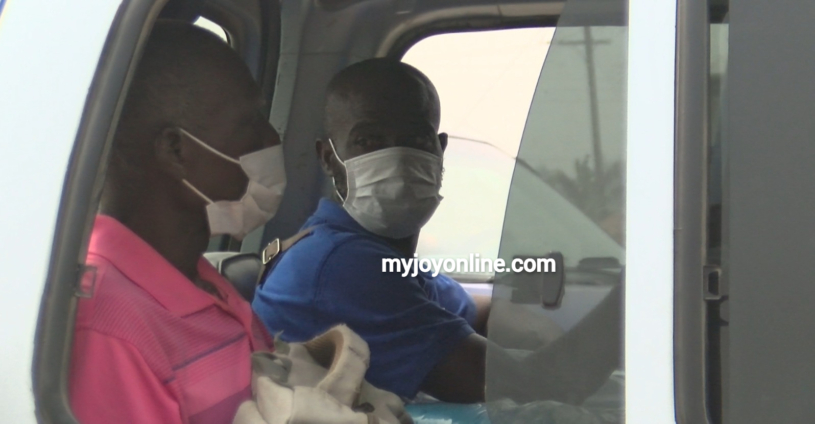If you abandoned your masks, it’s time to grab them as Accra earns the unenviable title of one of the cities in the world with the worst air quality.
IQAir, an air quality monitoring centre with more than a dozen sensors around the country, has ranked Accra's air quality as the worst, surpassing Mumbai in India and Wuhan in China.
Researchers are warning that this year’s harmattan is about to get worse, with the dust season expected to peak in the coming days.
Analysts with Clean Air Fund, including Victoria Owusu Tawiah, expressed concern, stating that "during February, we reach the peak of the harmattan.
"Mostly, the dust levels and concentration are quite high in February. Getting to the latter parts of February, conditions are expected to improve, thereby improving air quality over Accra."
Joshua Asamoah, a Senior Meteorologist with the Ghana Meteorological Agency, emphasises the variability of seasons, noting that "when we compare this year to that of last year, we can see we are getting the peak somewhere around late January into February."
The World Health Organisation (WHO) underscores the severe impact of air pollution on health, especially PM2.5 (tiny particles in the air).
Annual average concentrations of PM2.5 should not exceed 5 μg/m3, yet Accra's current situation surpasses these limits. Ghana’s air quality predicament is significantly attributed to the ongoing harmattan season, exacerbating pollution levels.
As Accra braces for the intensifying harmattan, residents are urged to take immediate precautions. With experts advising on the need for face masks, especially for children, and the importance of indoor activities, the city is on high alert for the challenges posed by this year’s relentless harmattan.
Dr. Sandra Kwarteng Owusu, a Paediatric Pulmonologist and air pollution advocate, advises parents and caregivers to "keep the children indoors as much as possible.
"If they need to come outdoors, we encourage them to wear face masks."
She underscores the impact of the current humidity, stating, "A lot of children are coming down with respiratory tract sections.
"So we need to encourage caregivers and parents to hydrate children adequately, but we can wear the face mask."
This story was a collaboration with New Narratives. Funding was provided by the Clean Air Fund. The funder had no say in the content of the story.
Latest Stories
-
CIB Ghana champions ethical banking with inaugural national challenge
10 minutes -
From gags to glory: How Joy Prime’s “On A More Serious Note” became Ghana’s top comedy show
19 minutes -
Woman arrested for alleged acid attack on ex-boyfriend in Accra
29 minutes -
Bawumia slams NDC, says they’ve told a lie by introducing ‘dumsor levy’ after removing E-levy
45 minutes -
Explainer | Can the restructured energy sector levy solve Ghana’s power crisis?
57 minutes -
The case for Ghana’s new energy sector levy
1 hour -
Dr Matthew Opoku Prempeh confirms NIB interrogation over his tenure as Education Minister
1 hour -
Minority vows to resist rerun Ablekuma North, demands immediate conclusion of election results
1 hour -
Joyce Annor Yeboah appointed Deputy General Manager of Juventus Academy Ghana, SMAC SC, and SMAC Sports Center
1 hour -
Ghana Water Limited to prosecute over 800 illegal water users in Accra West
1 hour -
Yaw Nsarkoh speaks: Iniquities of Inequity in Our Santa Claus Democracy
1 hour -
Continue to advance technical, professional knowledge with high industry impact – Deloitte Audit Partner to KSB
2 hours -
Afreximbank to expand continental investments, targets $2.5bn medical tourism gap
2 hours -
Ghana’s Dr. Delese Mimi Darko elected first Director-General of African Medicines Agency
2 hours -
Bryan Acheampong urges unity in NPP as he awaits committee report on his political future
2 hours

